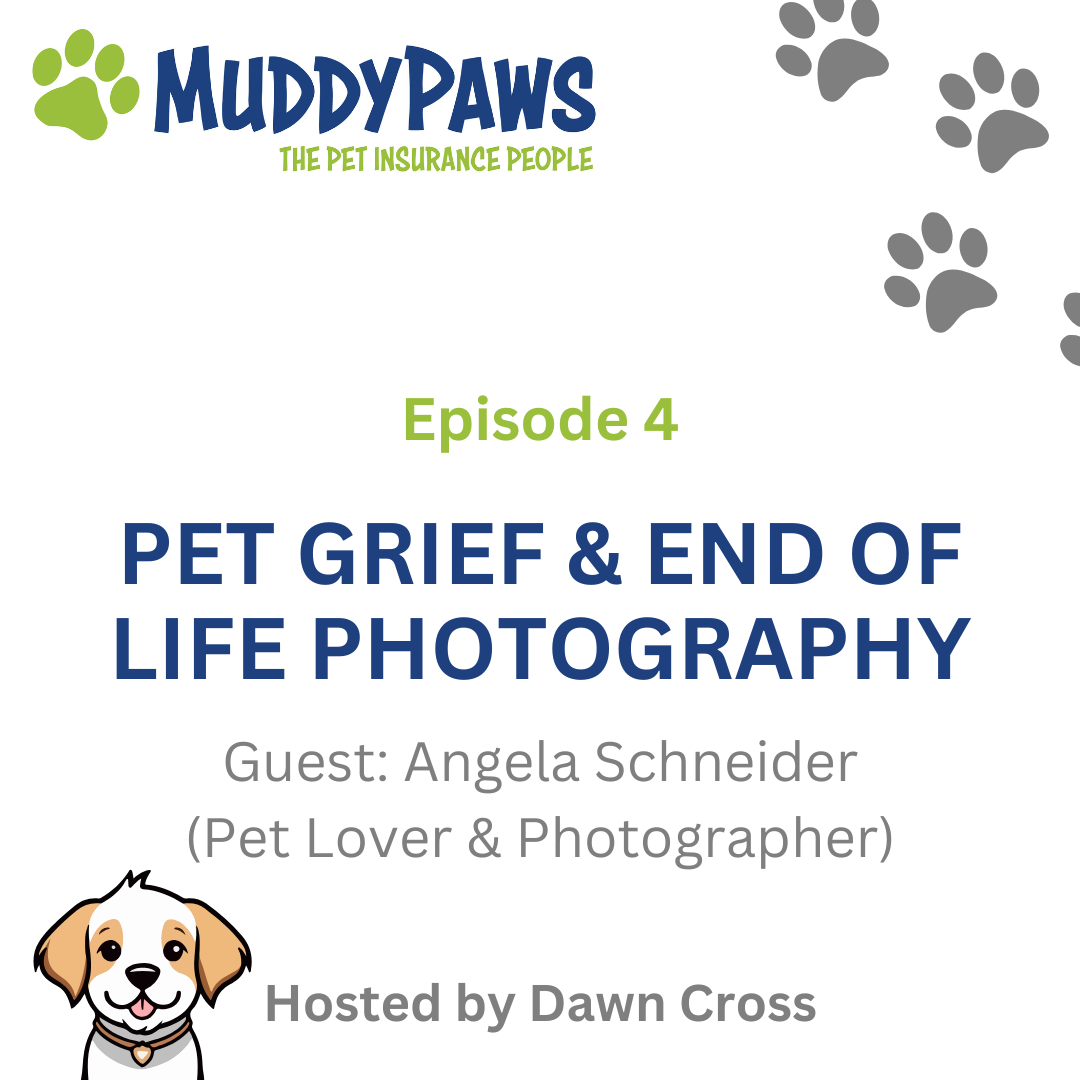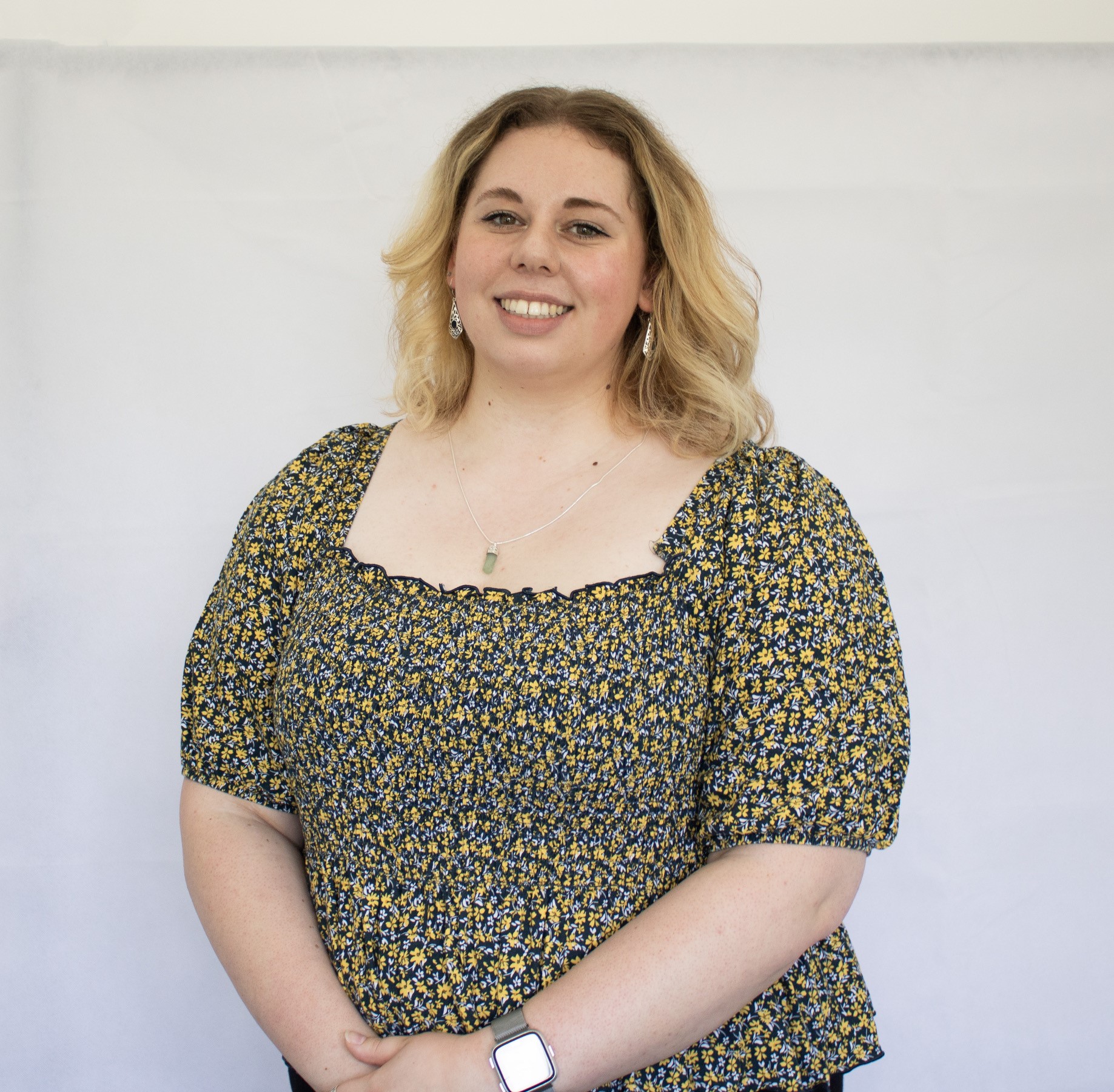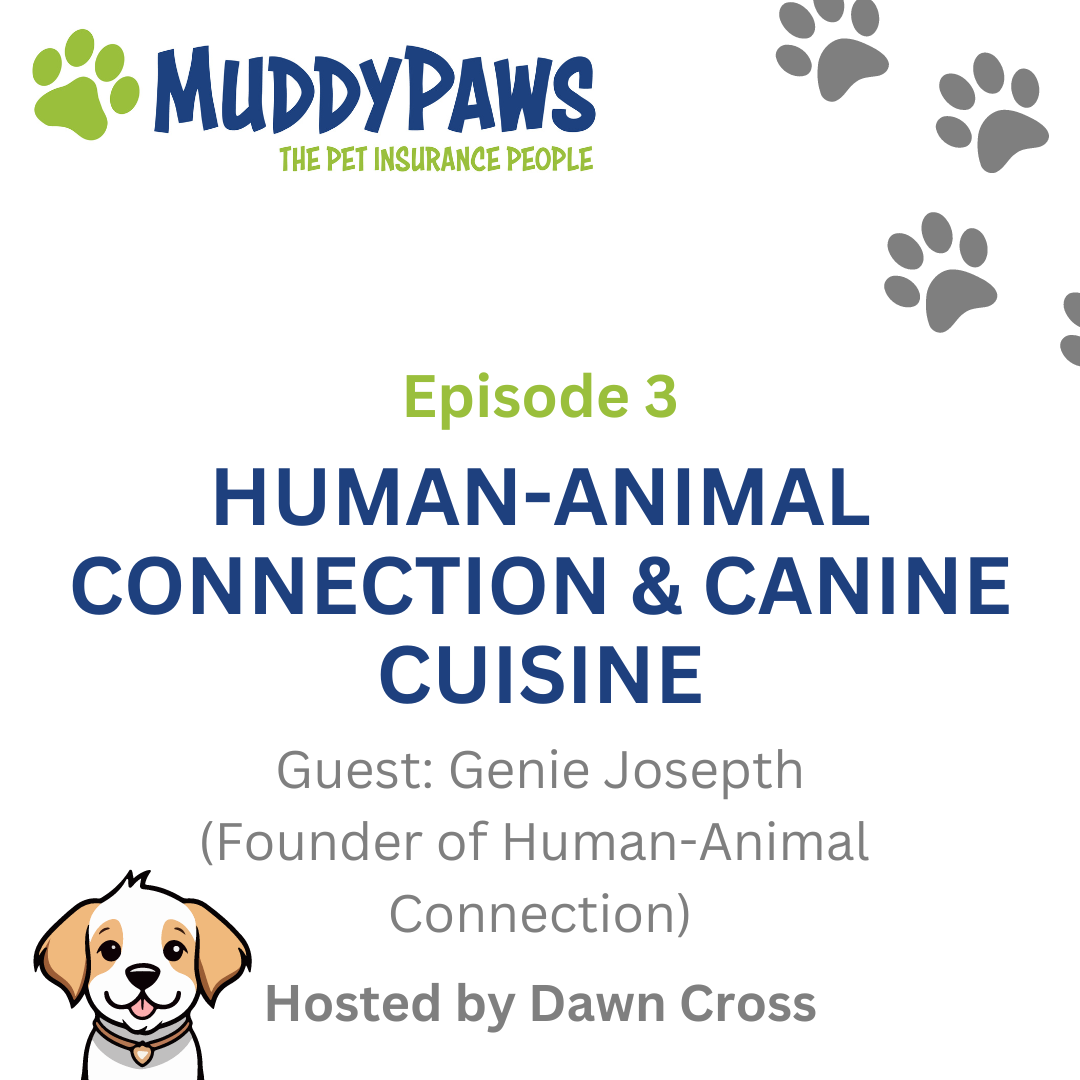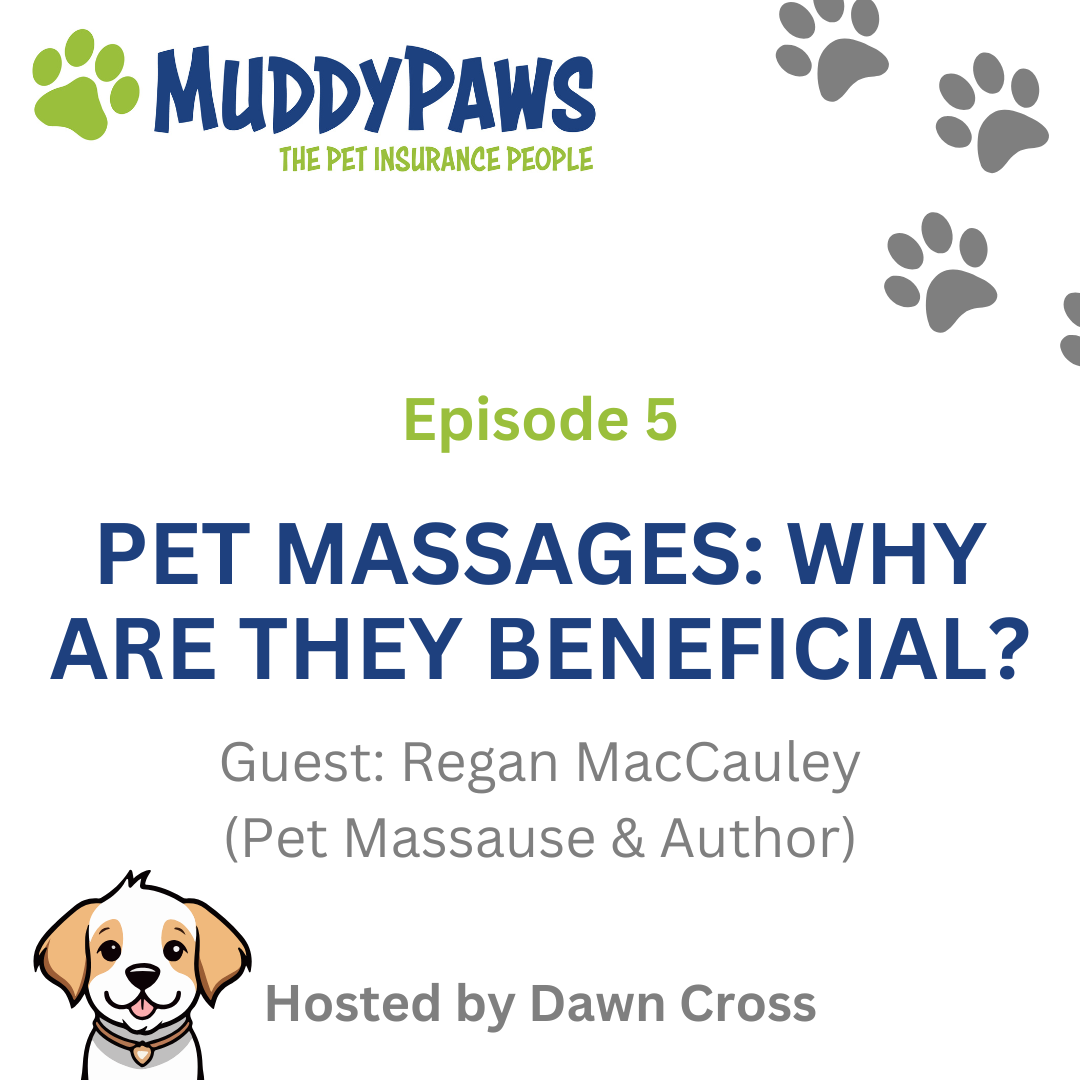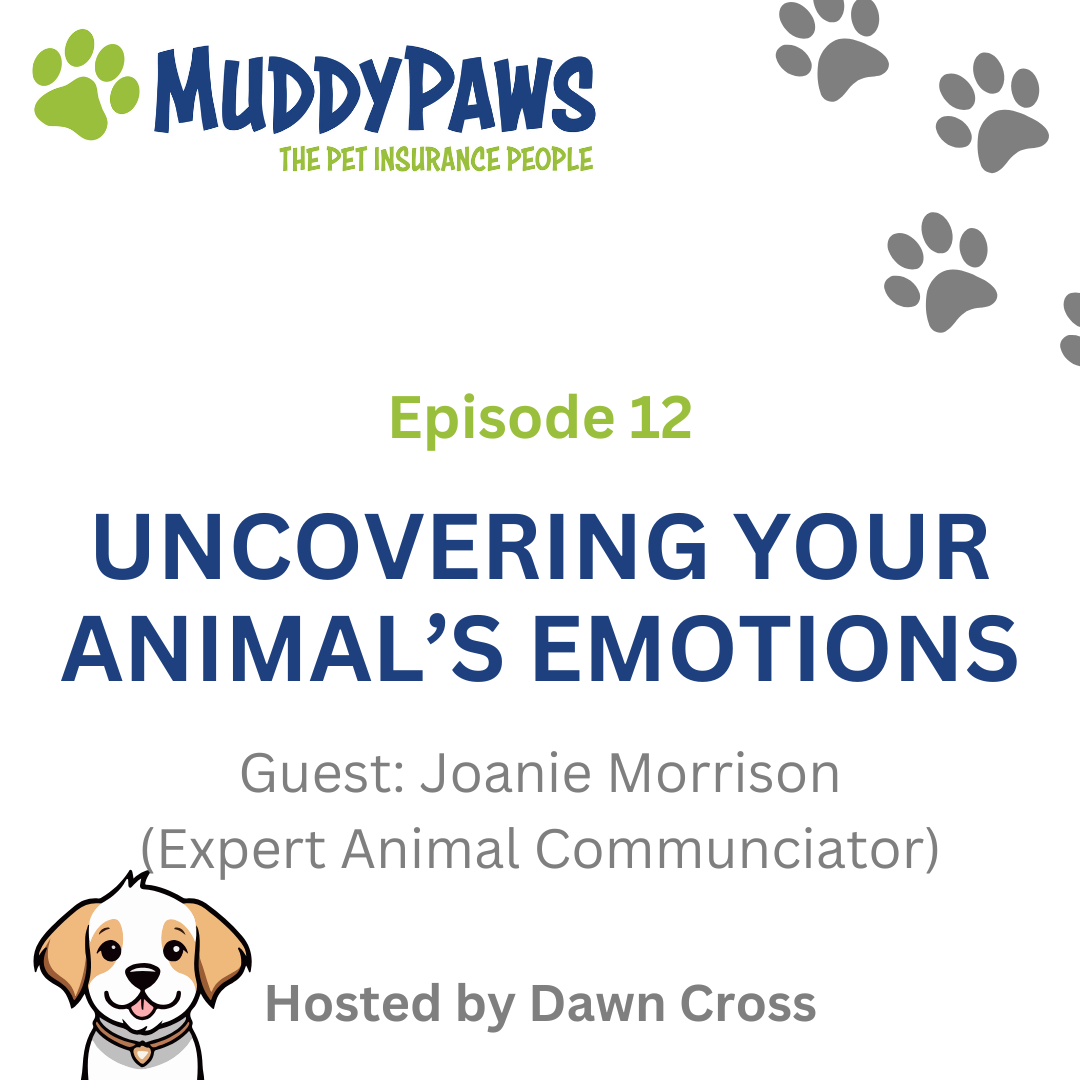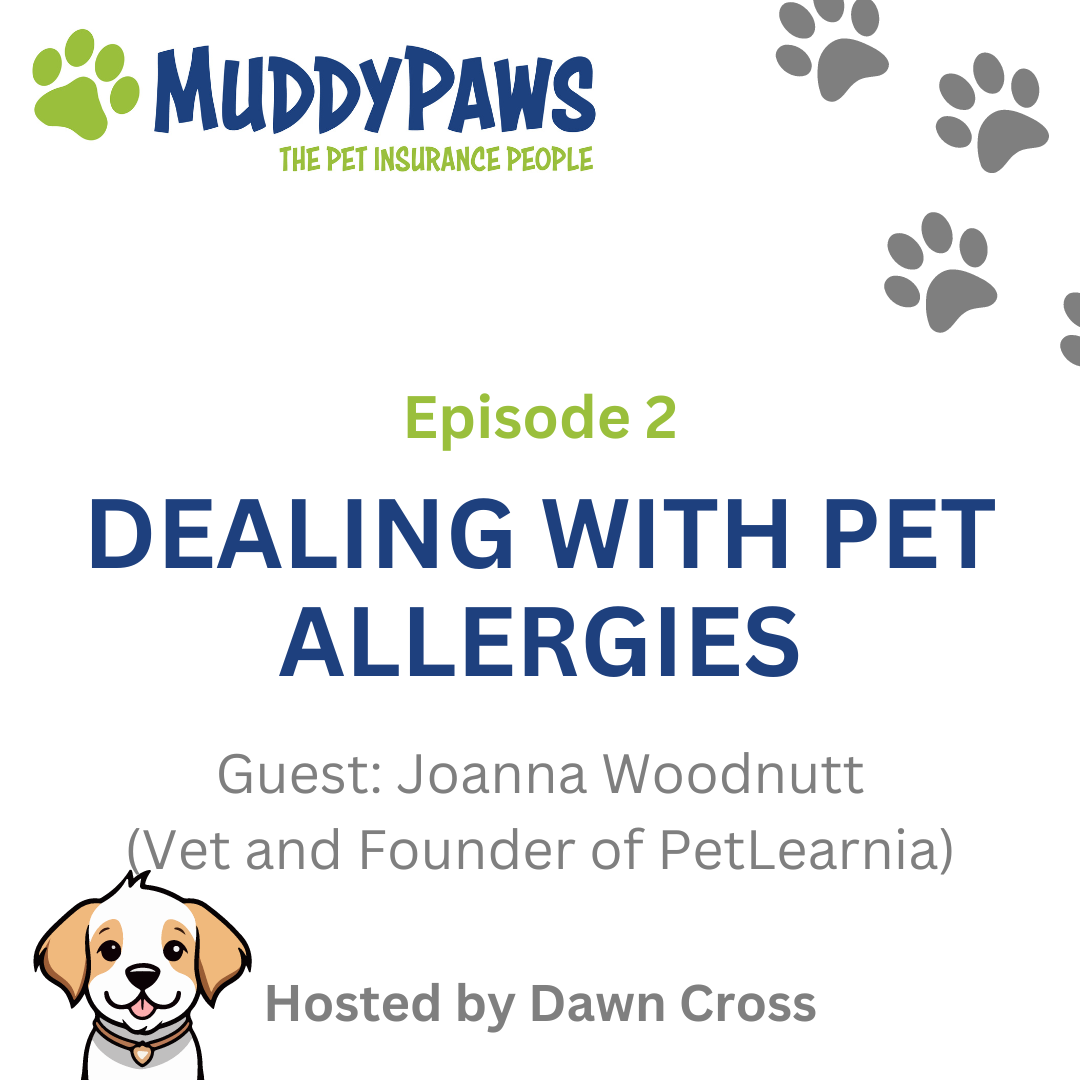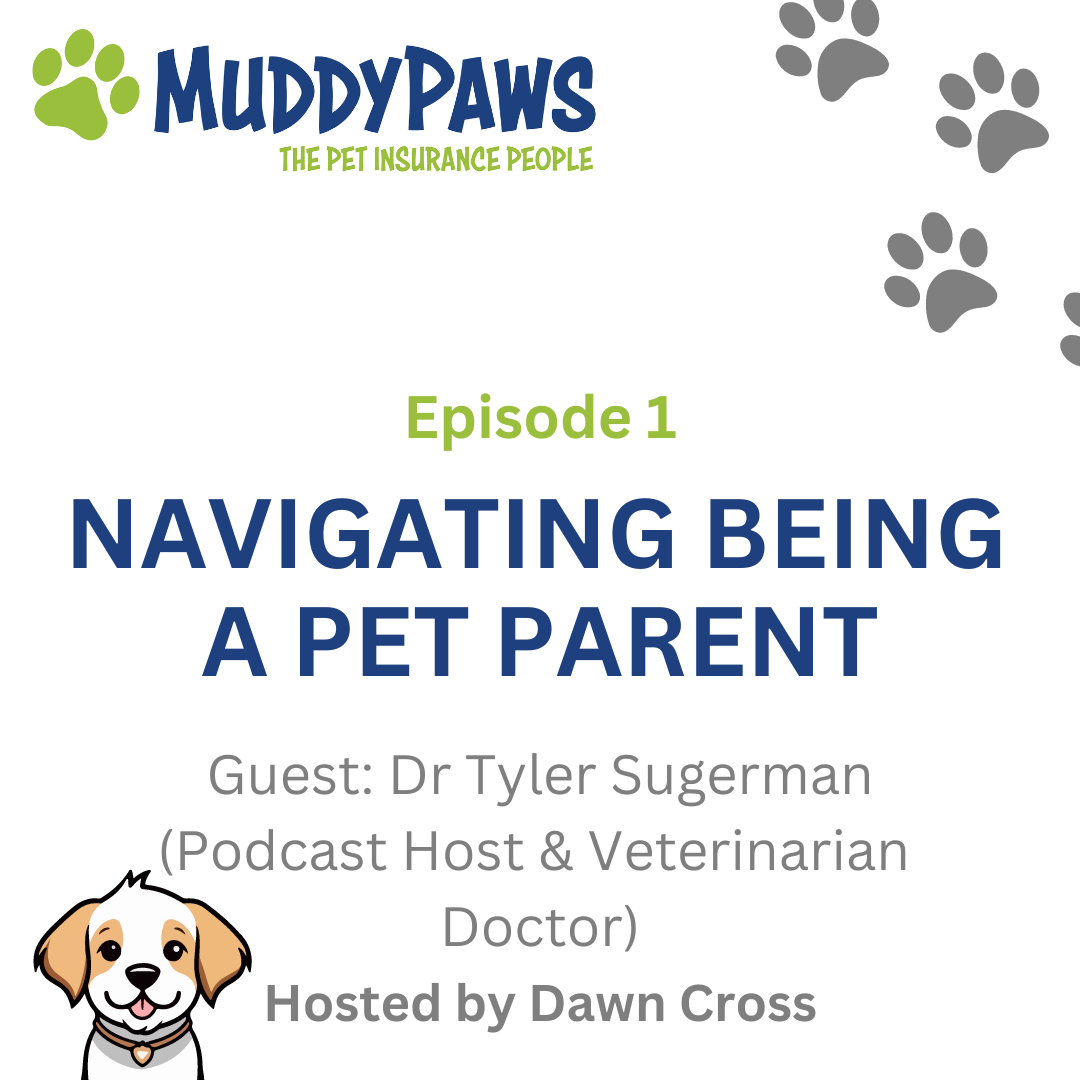Episode Transcript
[00:00:03] Speaker A: Welcome to the Muddy Paws Insurance podcast. I'm your host, Dawn Cross, and today I'll be discussing pet grief and end of life photography with Angela Schneider, pet lover and photographer.
If you enjoy our podcast, make sure to leave a rating on your favorite podcast directory.
[00:00:19] Speaker B: So if I could get you to start off, could you introduce yourself and what you get up to?
[00:00:25] Speaker C: Hi there. I am Angela Schneider and I am based in Spokane, Washington, in the United States.
I am a professional dog photographer, and although I was a sports writer when I was a child and thought that was the best job possible, this is the best job possible.
[00:00:46] Speaker B: Wow. I love it. How did you get into the photography? Is it something you happened upon randomly, or is it something where you just kind of did what once went, yeah, this is it for me. This what I want to do?
[00:00:57] Speaker C: Yeah, that's. That's always a good question.
I actually found the first photograph I ever took of a dog, and that was when I was about 12 or 13. It was our rough collie, and I grew up in a house where my mother always had a camera in her hands. So it seemed a natural thing for it to fall into my hand at some point. And I went into a career in journalism, which kept a camera in my hand because I worked for small newspapers where you have to be a jack of all trades type of thing. And I eventually left that industry, went into marketing and communications, and sidetracked away from my photography until I met the most beautiful boy that could ever have come into my life.
He still wrecks me.
His name was Shep, and he. I rescued him. A private rescue in Calgary, Alberta, where I was living at the time. And he completely transformed my life. He was a Maremma sheepdog, but I did not know anything about that breed until. Because it was the days before Google, right? I couldn't just sit down and go, what is a Maremma sheepdog? Like, we can now?
And they're a very, very special breed out of Italy.
And they have these really incredible abilities to be exceptionally stubborn, exceptionally independent, and exceptionally defiant.
I thought I was getting a lab, so there was a lot of learning to do about him and a lot of learning to do about myself. I was in my 30s, and I was going through a lot of crises that come with being a single woman in your 30s.
And.
Yeah, so he taught me that I was okay just being me, that I, you know, I was trying to bend and shape and make myself into somebody that everybody else wanted me to be, but all I needed to be was me for him.
And we found adventure Hiking in the Rocky Mountains. And he taught me patience, and he taught me to shake things off when they were. When they were starting to get hard. And, you know, there's so much that our dogs can teach us if we just open ourselves up to it, right?
And so I was hiking one day in the Rocky Mountains, the most beautiful place in the world, with the most beautiful dog in the world, and I realized I didn't have a camera in my hand.
And I was like, oh, that's not right.
I need to be. I need to be taking pictures of this. I'm a journalist. I'm a historian. I'm a storyteller. I need to be telling these stories about our adventures. And so I went out that Christmas with my Christmas bonus and bought myself my first digital dslr.
And it just kind of.
It just kind of grew from there. And it was when blogging was starting to take off. And the first Instagram post I ever posted back in, what, 2012 was of Shep. And, you know, I just used my camera to tell our stories together.
And then he died on August 20, 2014, two days after my 43rd birthday.
And it was so hard.
It was so hard. And I found myself wanting to look at pictures of him and me together.
And all I had were selfies.
Just stupid, crappy selfies, especially because cell phones weren't any good back then. Um, and so I.
I hung around with other photographers in Calgary, and they started sending me these little snapshots that they took of me and shop together. And I was like, those are so perfect.
Right? They weren't good. They. They weren't great portraits of us, but, oh, they were just so perfect to have. And. And I promised his spirit that I would try to make sure that didn't happen again or for anybody else that I love.
So I started trying to get better at taking pictures of dogs and people with their dogs. Then I found out it's an actual business that you can do. And I was like, oh, okay, that sounds fun.
And through all of that, I met my now husband. He moved me down from Canada to the United States, and one blip of a marketing and communications job that just was not good.
Here I am today, eight years into my dog photography business, and I very quickly saw that one third of my clients were coming to me because their dog was dying.
Their dog was either really advanced in age or they had.
They had received a dire diagnosis from their vet.
And so I was like, oh, well, here I am. I understand what they're going through because I've been there.
But how can I help them in this time? So I started reading about pet loss, grief and anticipatory grief and just trying to understand it a little bit better to help my clients, but also help myself.
And then January of 2022, my mom died and she and I had one of those complex mother daughter relationships.
[00:07:42] Speaker B: Yeah, yeah.
[00:07:44] Speaker C: We couldn't be in the same room for a very long time.
And I, I was just like, I, I gotta figure, I gotta, I, I gotta fix my.
I have a lot of here, I have a whole set of baggage, Samsonite baggage, just that I carry around every day, you know, and as many of us do. But, yeah, so I threw myself into learning a lot about grief and I, I took a lot of courses, but I wanted to stay focused on, on the pet aspect of it, which was, which is actually a way to honor my mother because were it not for her, there wouldn't have been dogs in our house too. So I grew up loving dogs and cameras because of her.
So.
Yeah. And then, so I took what I did and I developed a course to teach other pet photographers around the world how they could be better support for their clients who come to them for end of life sessions.
And so I've graduated, I think, about 25 professional pet photographers around the world. It's a small number, but it's an important number to me because if I can help change one life to understand that the grief over losing our dogs, our cats, our horses is normal and we all just need to have it be seen and validated and have our stories heard, then I've done okay in life. I think.
[00:09:36] Speaker B: This sounds like a really amazing journey and it's great to hear how, although there's some sad origins, you've kind of used it to push yourself to go to where you are today. And I think a lot of people don't quite think about it, but yeah, having that kind of near the end of life or like, you know, pet portraits with your loved furry friends can be really great as a way to hold that memory as well. And obviously, you know, when you do feel nostalgic or sad, whatever, you do have those memories there. Like, I mean, you can physically have it there or like digitally on your phone or whatever. And I think some people forget that sometimes. I think they need to do that as well.
[00:10:17] Speaker C: I adhere to the continuing bonds theory, which Dennis class defined some decades ago, in that our memories are what bring us comfort and solace because they keep the loved one alive in our hearts.
They keep them alive around us. And a big part of that for me is the photography aspect because what better way to keep those memories with you is to have real, actual evidence of those memories in front of you in a photo album or a bunch of prints or something.
[00:11:05] Speaker B: That sounds absolutely amazing. I know obviously you're not an expert personally on pet grief, but obviously you've probably seen clients and, you know, kind of learned bits here and there. What would you recommend for maybe anyone who maybe might be anticipating that, you know, they're going to have to start grieving at some point or are going for it? Like what. What things could you recommend or steps to take? Because obviously, you know, grief is a process and it can't just be over in like one day. But obviously hearing from other people is always beneficial to everybody.
[00:11:38] Speaker C: Yeah, I actually don't believe grief is ever over. It becomes a part of us that we just live with because we're never going to. I'm never going to stop missing Shep. I won't. You know, Bella, the beauty in the photos behind me, she's his successor. She's coming up on 10. And I recognize myself now that I am very much in the stages of anticipatory grief as I see her age and slow down.
But where was I going with that? Oh, yeah. I just. No matter how close I am with her, I'll never stop missing him. And when she's gone and there's another Maremma in my life because I am tied at the very soul to this breed, I will miss her every day and I'm going to miss my mom every day, no matter how complicated a relationship we had. So I don't believe that we ever, ever get over grief. It just becomes a part of who we are.
But I guess if I am a certified pet loss grief companion through the two Hearts Pet Loss center here in the States. And for me, I think one of the most important things to do is if. If we are coming to the end of our pets lives, whether it's through age or a diagnosis, do all the things right. It's like that movie the Bucket List with the two old white guys who, you know, I can't remember their names and do all the things like putting. Even if your dog is completely healthy and you're young, write a list. Write a list of all the things you guys want to do together. Like, I wanted Shep to have a paw in the Atlantic Ocean and the Pacific Ocean. We never quite got. He got over to Seattle, but we never quite got to having a paw dipped. And Bella has dipped in the Pacific Ocean many, many times. But I have yet to get her to the other side. And it's on the list. But it may not happen because of her age now and her life. And that's okay. I can bring it together by Shep having been in the Atlantic Ocean and Bella being in the Pacific Ocean.
But I mean, there are so many things that I want to still do with her. So I have a list. And it's just see things and do things with her and take photos of her. And that's another thing is whether you get a professional portrait session done with your dog, okay? It's not for everybody. I get it. And it can be expensive depending on your photographer.
So take all the photos that you want.
Bore the hell out of your friends by scrolling through your phone and going, look at what we did this weekend. Look at what we did. You know, because they're sticking you with their photos of their crotch goblins, right? They're telling you they're showing you all the things that their kids did, right?
And, oh, look, Suzy just graduated from kindergarten. And you're like, okay, well, Bella just hiked 10 miles. I went, take all the photos. Make sure you get video. Get video of your dog barking. Get video of your dog snoring, your cat mewing, whatever. Get video of it. Because the sound is important, too.
For the longest, longest, longest time, I could not look at videos or photos of Chef without turning into an absolute puddle on the floor.
But today I go back and I play a couple of those crappy old videos from my old. My old phones. And I love the sound of his voice.
You know, I love the sound of his voice. And I celebrate dogs doing dog things. Whenever I see a dog doing a dog thing, like, my husband will hush Bella up when she's barking too much. I'm like, nope, she has a story to tell and we're going to let her tell it.
She has a voice, she has an opinion.
It's a beautiful thing. And I love the sound of her voice. So take video, take photos. Do all the things.
You know, I think.
Who was it?
Was it Whitman who said, eat all the marrow out of the bone, you know, Probably.
And do it with your dog?
[00:16:49] Speaker B: Yeah. I think some people tend to forget or dunno whether you're owner or not, and sometimes forget that they are very much a part of your family. And you do have such a deep relationship with the pets as well. So, you know, I think it sounds very silly to even say this, but, like, remember, don't feel silly for grieving your pet, you know, because at the end of the day, they are very much a part of your family unit, no matter what kind of size or, you know, how it works, even if it's just you and the pet, you know, it's something that you need to remind yourself. And it's also really important, obviously, to make those memories, like you were saying, because, yeah, you are going to miss them as if they were like another family member who had passed away. You've got a. Make those memories, make them count. And at the end of the day, you know, your feelings are valid as well.
[00:17:35] Speaker C: Absolutely.
There's a type of grief called disenfranchised grief, and it's basically what we're feeling is not validated by the rest of society. And yet here you have this companion who is with you mostly 24 7.
You know, I can't tell you how many tears I have of heartbreak. I cry. I have cried into Shaps and Bella's fur over whatever they are our support networks, they are our sounding boards. They, you know, they listen to us without judgment. When that's gone, it's a huge, huge hole in our lives.
And if we're not getting correct support from our family, friends, and other loved ones, then we're going to feel invalidated, and we may even be embarrassed by our grief. And then it becomes such an angry little ball of wool in our hearts that we can't get around because we're not being told that our grief is okay. Because it wasn't just a dog or just a cat.
I don't even care if it's an iguana or a goat. I mean, it was there. It was there for you, right? Yeah. It was your best. Best friend. And so one of my mentors, Colleen ellis, she says 70% of people in the United States own a PED, but it's the 30% who are defining what our grief is telling us that our grief is wrong or silly or what have you. And I say that we all just stand up and go, no, this was my best friend.
[00:19:36] Speaker B: Do you have anything else you'd like to add before we wrap up the episode today?
[00:19:40] Speaker C: Find your people. Find your people. Because when it does happen, your best support will come from the people who understand what you're going through.
You know, find other cat people, find other dog people, and allow them to be a part of your support network.
[00:20:01] Speaker B: Yeah, yeah, that sounds really key advice, to be honest.
[00:20:04] Speaker C: Yeah.
And who's better than dog lovers? I don't know.
[00:20:11] Speaker B: Thank you so much for coming on today to discuss this.
[00:20:14] Speaker C: Oh, you're so welcome. It was my pleasure.
[00:20:18] Speaker A: Thank you to my guest today, Angela, for chatting about her experience with pet grief and the importance of end of life photos.
[00:20:25] Speaker B: If you'd like to know more about.
[00:20:26] Speaker A: Her, please click the link in the description.
I have been your host on Cross and make sure to click follow for more episodes.
MuddyPaws takes pride in keeping things simple. Our goal is to provide a reliable insurance policy that's well delivered and gives you peace of mind. Intelligent underwriting, a user friendly application and outstanding customer service. Ensure we stand out from the crowd and provide the best for your furry friends.
